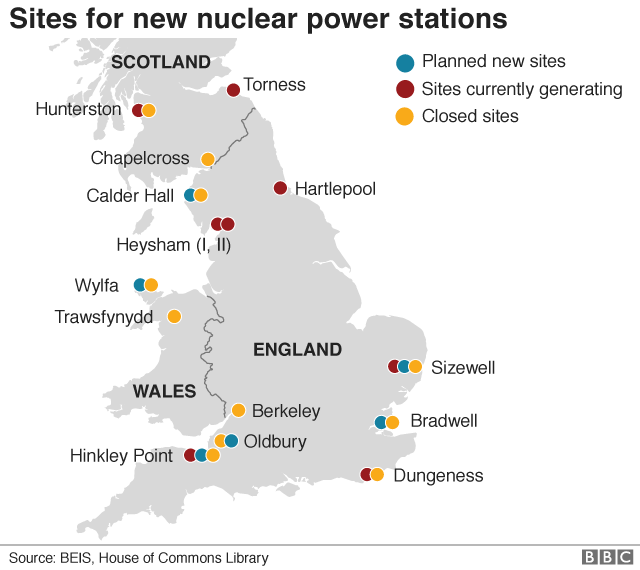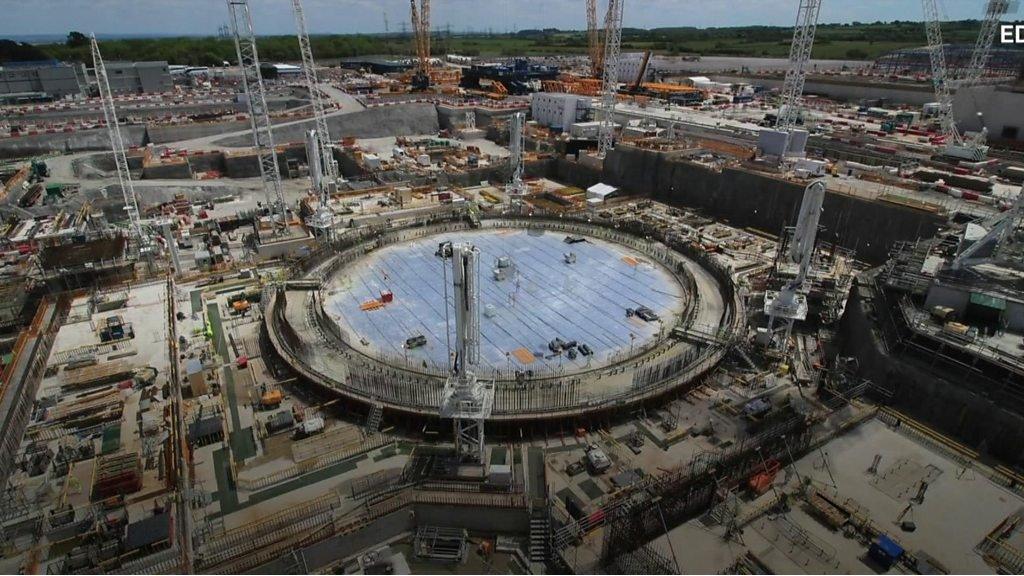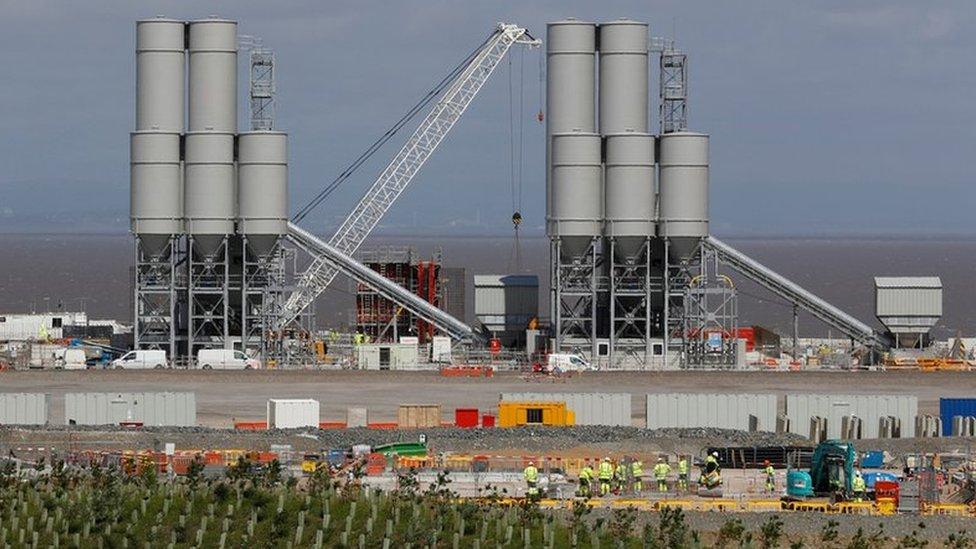Hinkley Point C nuclear plant to run £2.9bn over budget
- Published
- comments
The final cost could be up to £22.5bn, EDF director Paul Spence says
French power company EDF said the new nuclear plant it is building at Hinkley Point C will cost up to £2.9bn more than thought.
It raised its estimate for the project, in Somerset, to between £21.5bn and £22.5bn, blaming "challenging ground conditions".
It also said the risk of the project being 15 months late had risen.
The firms constructing the new plant, not taxpayers and customers, pay the bill for the increase in costs.
"This is clearly bad news for nuclear new build prospects in the UK, particularly in light of recent record low offshore wind prices," said Investec analyst Martin Young.
Cheap wind
Because of the way that the project is being funded, taxpayers and customers will not foot the bill for the increase in costs - EDF and its partner on the project China General Nuclear Power Corp (CGN) will pay.
However, the companies should be cushioned by a comparatively high fixed price for electricity for customers, which was agreed in order to make costs predictable for consumers and to provide leeway for the builders.
Last week, prices for new wind power delivered by 2025 were set at prices as low as £40 per megawatt hour. By comparison, power from Hinkley Point C is expected to cost £92.50 per megawatt hour.
While EDF and CGN, which is partnering the French firm on the work, are still aiming to finish in 2025, the chance of that being 2026 has risen.
The BBC's Simon Jack: "This is a construction project of really epic proportions"
"We've given the best view we can, given what we know," Paul Spence, EDF's director of corporate and regulatory affairs, told the Today programme. "I can't say today what will happen over the course of the construction."
EDF last raised its estimate for the project in 2017, by £1.5bn.
In common with other major UK building projects, such as Crossrail and HS2, the power plant is over budget.
The first phase of the HS2 high-speed railway between London and Birmingham will be delayed by up to five years, Transport Minister Grant Shapps said earlier this month.

Its cost has also risen from £62bn to between £81bn and £88bn.
Crossrail, the new railway line bisecting London from Reading to Shenfield, was due to be operating by December. The project was allocated £14.8bn in 2010, but this has since swollen to £17.6bn, and is likely to rise further, according to a report by MPs.
"Cost increases reflect challenging ground conditions which made earthworks more expensive than anticipated, revised action plan targets and extra costs needed to implement the completed functional design, which has been adapted for a first-of-a-kind application in the UK context," EDF said in a statement, external.


Why the Hinkley overrun matters
These cost overruns will not hit UK consumers. However, a new way of paying for further nuclear stations, such as Sizewell, is being considered.
Under this new model, consumers would see costs of construction added to their bills as the project went along. It means that customers could be exposed to cost overruns.
That is why today's announcement is important and why EDF will find it harder to make the argument for building Sizewell.
That argument is already getting tougher as the price of zero carbon offshore wind continues to plummet.
Making a forty-year bet on another nuclear station with a funding model that exposes consumers to those overruns, is a big call for any government to make.

- Published20 September 2019

- Published3 July 2017
